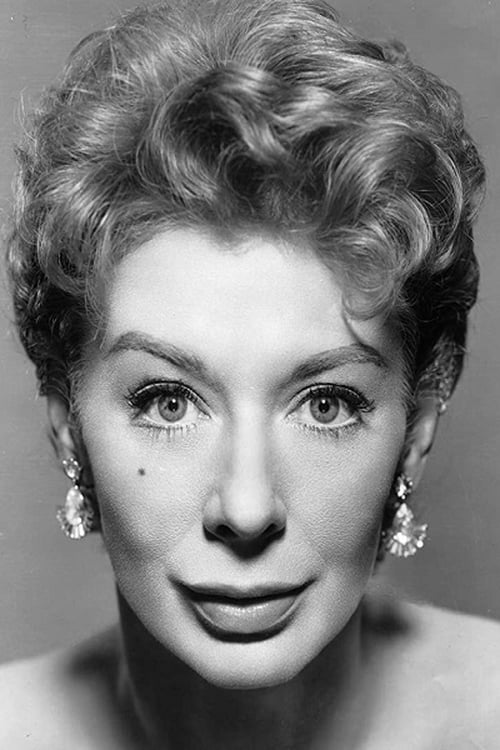
Gwen Verdon
Birth : 1925-01-13, Culver City, Los Angeles, California, USA
Death : 2000-10-18
History
Gwyneth Evelyn "Gwen" Verdon was an American actress and dancer. She won four Tony Awards for her musical comedy performances, and served as an uncredited choreographer's assistant and specialty dance coach for theater and film. With flaming red hair and a quaver in her voice, Verdon was a critically acclaimed performer on Broadway from the 1950s-70s. Having originated many roles in musicals she is also strongly identified with her second husband, director–choreographer Bob Fosse, remembered as the dancer–collaborator–muse for whom he choreographed much of his work and as the guardian of his legacy after his death.
By the time she was six, she was already dancing on stage. She went on to study multiple dance forms, ranging from tap, jazz, ballroom and flamenco to Balinese. In 1942, Verdon’s parents asked her to marry family friend and tabloid reporter James Henaghan after he got her pregnant at 17, and she quit her dancing career to raise their child. After her divorce, she entrusted her son Jimmy to the care of her parents. Early on, Verdon found a job as assistant to choreographer Jack Cole. During her five-year employment with Cole, she took small roles in movie musicals as a "specialty dancer" She also taught dance to stars such as Jane Russell, Fernando Lamas, and Lana Turner. Verdon started out on Broadway as a "gypsy," going from one chorus line to another. Her breakthrough role finally came as second female lead in Cole Porter's musical Can-Can. Verdon's biggest success was George Abbott's Damn Yankees. Verdon won another Tony and went to Hollywood to repeat her role in the 1958 movie version Damn Yankees. Verdon won another Tony for her performance in the musical, New Girl in Town, and won her fourth Tony for Redhead. Verdon and Fosse continued to collaborate on projects such as musicals Chicago and Dancin', as well as All That Jazz. After originating the role of Roxie opposite Chita Rivera's Velma Kelly in Chicago, Verdon focused on film acting, playing character roles in movies such as The Cotton Club, Cocoon and its sequel. She continued to teach dance and musical theater and to act. She received three Emmy Award nominations for appearances on Magnum, P.I., Dream On, and Homicide: Life on the Street. Verdon appeared in Alice and Marvin's Room). In 1999, Verdon served as artistic consultant on a Broadway musical designed to showcase examples of classic Fosse choreography, called Fosse. which won a Tony Award for best musical.
Verdon appeared in the movie Walking Across Egypt, as well as Bruno. Verdon received a total of four Tonys, for best featured actress for Can-Can and best leading actress for Damn Yankees, New Girl in Town, and Redhead. She also won a Grammy Award for the cast recording of Redhead.
Verdon was inducted into the American Theater Hall of Fame in 1981, and in 1998, she was awarded the National Medal of Arts.
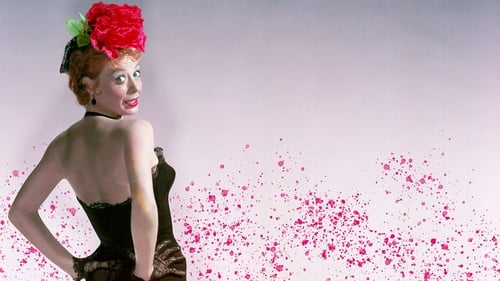
Herself (archive footage)
Merely Marvelous is a celebration of the art and life of Broadway's greatest dancing star, Gwen Verdon. She overcame many obstacles, including rickets, the Hollywood system, a loveless first marriage and a difficult second marriage to choreographer/director Bob Fosse, to become a multi-Tony Award-winning performer. Gwen's life is told through interviews with family members and theatre associates as well as a mine of rare footage from her Broadway and Hollywood careers. Merely Marvelous is the story of a brave woman who rose to the very top of her profession.
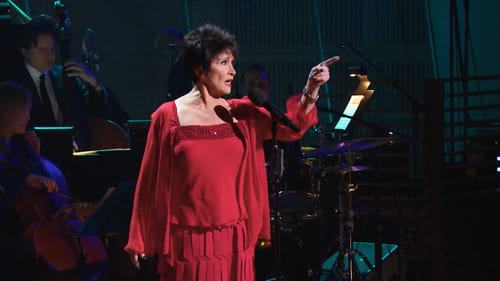
Self (archive footage)
A retrospective of Chita Rivera's film, television and stage career, including interviews with Dick Van Dyke, Ben Vereen, Carol Lawrence and others. Originally aired as Episode 2 of Season 43 of the PBS series Great Performances.

Lola (segment "Damn Yankees")
Broadway royalty and Tony-winners Tommy Tune, Carol Channing, Robert Goulet, and Harvey Fierstein are your hosts for this third compilation of great musical performances from the archives of the Tony Award® broadcasts. Legendary stars from legendary shows strut their stuff in 23 performances that have become part of Broadway history.

Roxie Hart (segment "Chicago")
The golden age of the annual Tony Awards ceremony lasted from 1967 to 1986 — the period during which Alexander H. Cohen and his wife, Hildy Parks, were the producers of the show. This film offers a compilation of performances from Tony Award broadcasts during those years. They are presented with color-corrected footage and digitally re-mastered sound.

Herself
Broadway: The Golden Age is the most important, ambitious and comprehensive film ever made about America's most celebrated indigenous art form. Award-winning filmmaker Rick McKay filmed over 100 of the greatest stars ever to work on Broadway or in Hollywood. He soon learned that great films can be restored, fine literature can be kept in print - but historic Broadway performances of the past are the most endangered. They leave only memories that, while more vivid, are more difficult to preserve. In their own words — and not a moment too soon — Broadway: The Golden Age tells the stories of our theatrical legends, how they came to New York, and how they created this legendary century in American theatre. This is the largest cast of legends ever in one film.
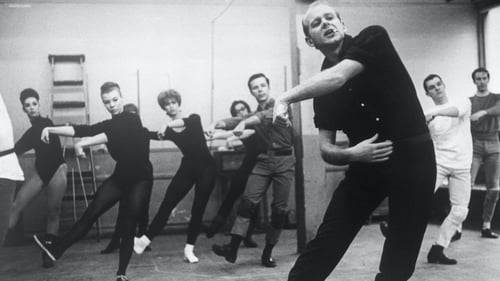
Creative Consultant
Fosse is a three-act musical revue showcasing the choreography of Bob Fosse. The musical was conceived by Richard Maltby, Jr., Chet Walker, and Ann Reinking. It won the Tony Award for Best Musical in 2000. In 2002, Fosse, featuring Reinking and Ben Vereen, was aired as part of the "Great Performances — Dance In America" series on PBS television. This filmed Broadway tribute strings together acclaimed director/choreographer Bob Fosse's "greatest hits."
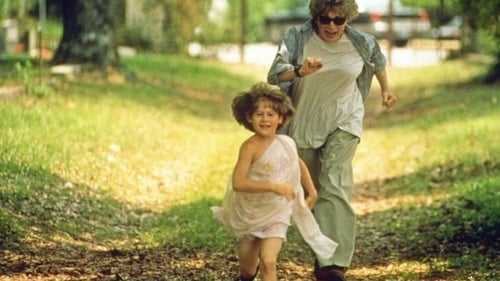
Mrs. Drago
The story of a unique young boy genius, Bruno, whose expression of his own individuality leads his family and community along an emotional journey.

Alora
An elderly widow befriends an orphaned juvenile delinquent.

Edith Cooper
Sarah and Harriet have been best friends since childhood. They married at the same time, had children within the same year and now find themselves facing uncertain futures after the sudden deaths of their husbands. Though they have much in common, Sarah is a relaxed nature lover, while Harriet is intense and set in her ways. Sarah has been able to move on with her life with the help of her mother, her maid Katie and Will, the new man in her life. Harriet is unable to cope with her loss and her relationship with her daughter Pammy is strained. When Harriet is diagnosed with a serious illness, she and Sarah learn a lesson about love and friendship.

Self
A profile of composing team John Kander and Fred Ebb, who have written many Broadway musicals. Highlights include interviews with Lauren Bacall, Joel Grey and others, as well as the two men themselves, plus clips of performances of their songs.
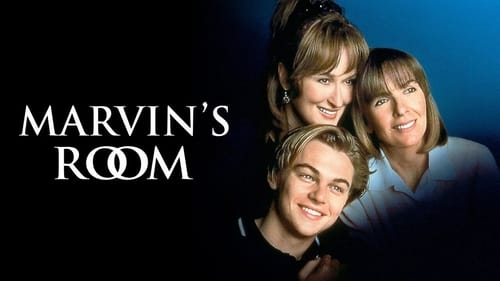
Ruth Wakefield
A leukemia patient attempts to end a 20-year feud with her sister to get her bone marrow.

Etta Pell
Lucy married at the turn of the last century, when she was fifteen and her husband was fifty. If Colonel William Marsden was a veteran of the "War for Southern Independence", Lucy became a "veteran of the veteran" with a unique perspective on Southern history and Southern manhood. Her story encompasses everything from the tragic death of a Confederate boy soldier to the feisty narrator's daily battles in the Home--complete with visits from a mohawk-coiffed candy-striper.
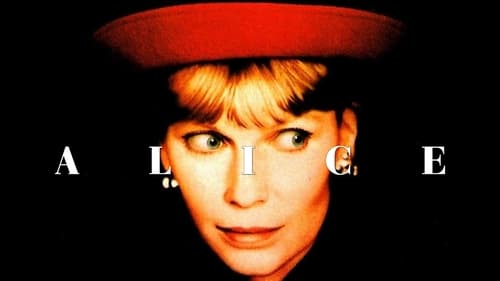
Alice's Mother
Alice Tate, mother of two, with a marriage of 16 years, finds herself falling for the handsome sax player, Joe. Stricken with a backache, she consults herbalist Dr. Yang, who realizes that her problems are not related to her back, but in her mind and heart. Dr. Yang's magical herbs give Alice wondrous powers, taking her out of well-established rut.

Self
A leading acting teacher who trained some of the most famous performers of the stage and screen, Sanford Meisner was a founding member of the Group Theatre. The Group Theatre, a cooperative theater ensemble, became a leading force in the theater world of the 30s. Meisner performed in many of the group’s most memorable productions.

Herself - Narrator
A documentary profile of director/choreographer Bob Fosse. Includes clips from his films and television specials as well as interviews with Fosse, remembrances from his friends, and commentary by Gwen Verdon. A Dance in America presentation, broadcast as part of Great Performances.

Bess McCarthy
The reinvigorated elderly group that left Earth comes back to visit their relatives. Will they all decide to go back to the planet where no one grows old, or will they be tempted to remain on Earth?
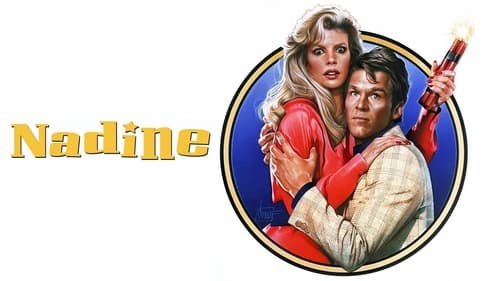
Vera
Hairdresser Nadine Hightower wants to retrieve the risqué photos she once posed for, but when she visits the photographer at his office, he's murdered by an intruder. Nadine talks her estranged husband, Vernon, into going along when she returns to the office, where they stumble across plans for a less than legal construction project. But when Vernon tries to turn the documents into a cash windfall, he and Nadine are pursued by goons with guns.
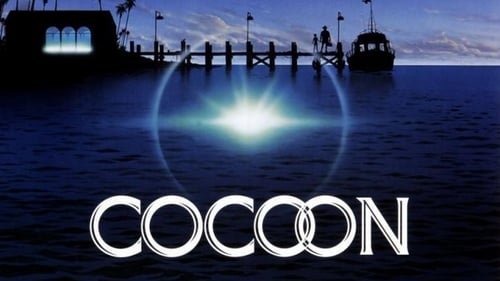
Bess McCarthy
When a group of trespassing seniors swim in a pool containing alien cocoons, they find themselves energized with youthful vigor.

Self
This special is the second "Night of 100 Stars" to benefit The Actors Fund of America. Edited from a seven-hour live entertainment marathon that was taped February 17, 1985, at New York's Radio City Music Hall, this sequel to the 1982 "Night of 100 Stars" special features 288 celebrities.
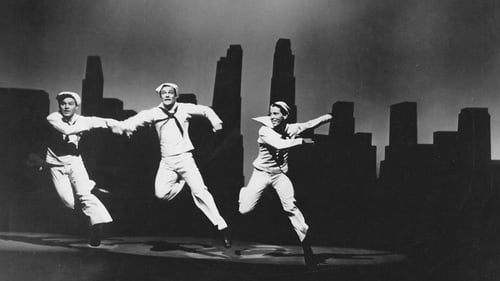
Lola (archive footage)
A documentary film about dancing on the screen, from it's orgins after the invention of the movie camera, over the movie musical from the late 20s, 30s, 40s 50s and 60s up to the break dance and the music videos from the 80s.
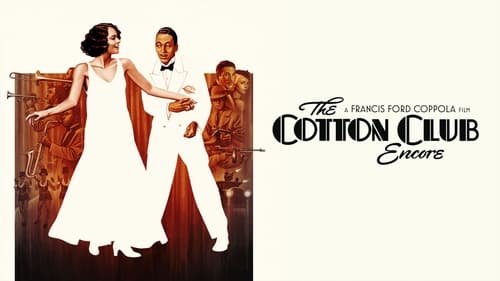
Tish Dwyer
Harlem's legendary Cotton Club becomes a hotbed of passion and violence as the lives and loves of entertainers and gangsters collide.

Herself - Host
Dance routines from some of Broadway's greatest musicals (including The Boyfriend, Carousel, Finian's Rainbow, George M and Shenandoah) are recreated.

Maureen Comly
Three hopefuls -- Shanna Reed, Deborah Geffner and Maureen Teefy -- each wants to be a Radio City Music Hall Rockette, vying for the one open spot the hall's choreographer, Gwen Verdon (in her TV-movie debut), has to fill. Sheree North plays Geffner's ex-Rockette mother and John Heard is a magazine reporter who falls for each of the aspiring dancers. The film was shot partially at Radio City Music Hall and was given a single public showing there several nights before its television premiere.

(archive footage)
Gene Kelly and Fred Astaire present more golden moments from the MGM film library, this time including comedy and drama as well as classic musical numbers.

Mrs. Moffat
The operator of a turn-of-the-century boarding house is haunted by a vicious female entity. The ghost drives all visitors away except for a young writer who becomes infatuated with it.

Audience
Liza Minnelli stars in a television concert directed and choreographed by Bob Fosse. She performs such songs as the title number and "Son of a Preacher Man." The concert concludes with a medley of songs from the film Cabaret (1972). The special, Minnelli and Fosse all won Emmy Awards. Bob Fosse also won the Oscar and Tony that year, in the only instance of any person ever winning all three in a one-month period.

Lola
Film adaptation of the George Abbott Broadway musical about a Washington Senators fan who makes a pact with the Devil to help his baseball team win the league pennant.
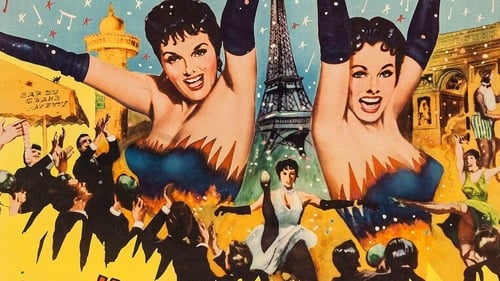
Specialty Dancer (uncredited)
Two Broadway showgirls, who are also sisters, are sick and tired of New York as well as not getting nowhere. Quitting Broadway, the sisters decided to travel to Paris to become famous.
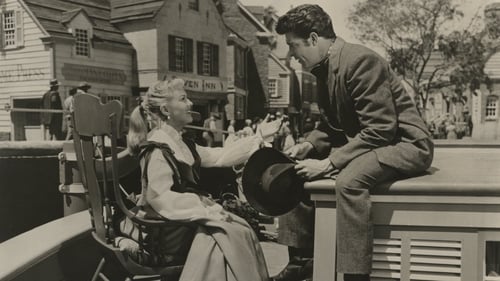
Abigail (uncredited)
Erie Canal, N.Y., 1850: Molly Larkins, cook on Jotham Klore's canal boat, has a love-hate relationship with her boss. She hires handsome new haul-horse driver Dan Harrow and the inevitable triangle develops (complicated by Dan's desire to farm and Molly's to boat) against a background of the canalmen's fight against the encroaching railroad.

Choreographer
Mark Fallon, with partner Kansas John Polly, tries to introduce honest gambling on the riverboats. His first success makes enemies of the crooked gamblers and of fair Angelique Dureau, whose necklace he won. Later in New Orleans, Mark befriends Angelique's father, but she still affects to despise him as his gambling career brings him wealth. Duelling, tragedy, and romantic complications follow.
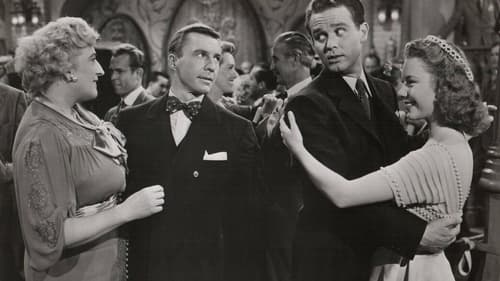
Specialty Dancer (uncredited)
This semi-film within a film opens in the office of producer George Jessel, who never saw a camera he couldn't get in front of, who is holding a story conference to determine the screen treatment for the life of Eva Tanguay, and Jessel is unhappy with what the writers present him.He tells them to look up Eddie McCoy, Eva's one-time partner, for the real inside story on the lusty and vital Eva. Eddie's version is that he discovered her working as a waitress in an Indianapolis restaurant in 1912, wherein singer Larry Woods and his partner Charles Bennett get into a fight over her and both land in the hospital, and McCoy convinces the manager to put Eva on as a single to fill their spot. She flopped, but McCoy arranges for Bennett to be her accompanist, and she went out of his life. The writers look up Bennett, now head of a music publishing company, who says McCoy's story is phony, and it was Flo Zigfeld who discovered Eva for his Follies.
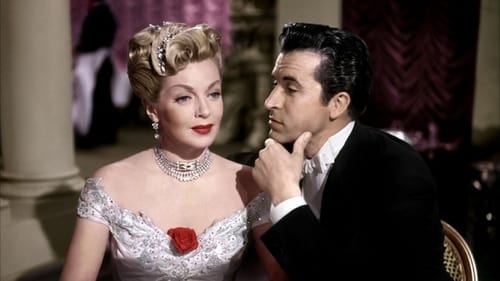
Specialty Can-Can Dancer (uncredited)
Marshovia, a small European kingdom, is on the brink of bankruptcy but the country may be saved if the wealthy American Crystal Radek, widow of a Marshovian, can be convinced to part with her money and marry the king's nephew count Danilo. Arriving to Marshovia on a visit, Crystal Radek change places with her secretary Kitty. Following them to Paris, Danilo has a hard time wooing the widow after meeting an attractive young woman at a nightclub, the same Crystal Radek who presents herself as Fifi the chorus girl. Plot by Mattias Thuresson.
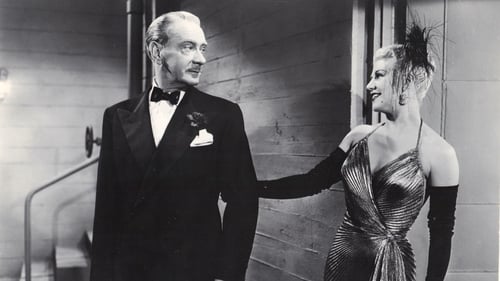
Girl in Commercial (uncredited)
Thornton Sayre, a respected college professor - secretly formerly a silent films romantic action hero - is disturbed, feeling his privacy has been violated, and his professional credibility as a scholar jeopardized, when he learns his old movies have been resurrected and are being aired on TV. He sets out to demand this cease. However, his former co-star is the hostess of the TV show playing the films, and she has other plans.
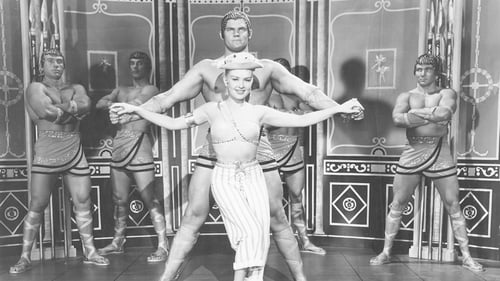
Gwen Verdon / Sappho, Dancer in No Talent Joe (uncredited)
A Broadway star devises a scheme to win back her husband when she suspects he's being unfaithful.
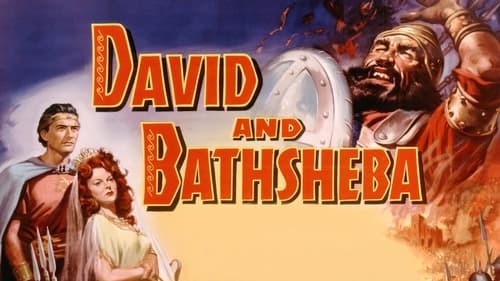
Specialty Dancer (uncredited)
King David enters into an adulterous affair with the beautiful Bathsheba, which has tragic consequences for his family and Israel.

Girl in Nightclub (uncredited)
A brash young singer and an unemployed "jukebox girl" hire an elderly Confederate "colonel" to teach them to be "southern" so they can land a radio gig for sponsor Plantation Coffee. Comedy.
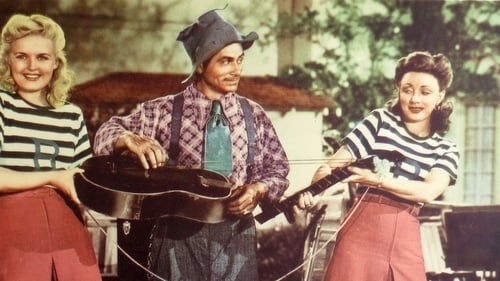
Cheerleader
During World War II three brothers go to enlist in the Air Force, but since they're farmers they're told they're needed at home more than in the service. Determined to join up, they enlist the aid of a pretty young girl whose father is head of the local draft board.
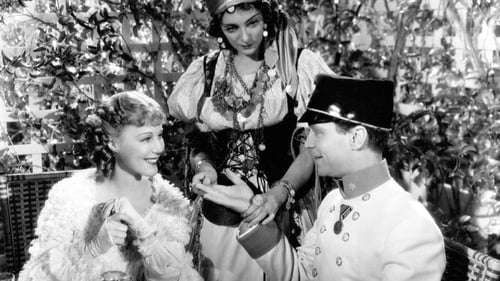
Specialty Ballerina (uncredited)
Princess is destined to marry the Emperor, until her sister steps in.




























